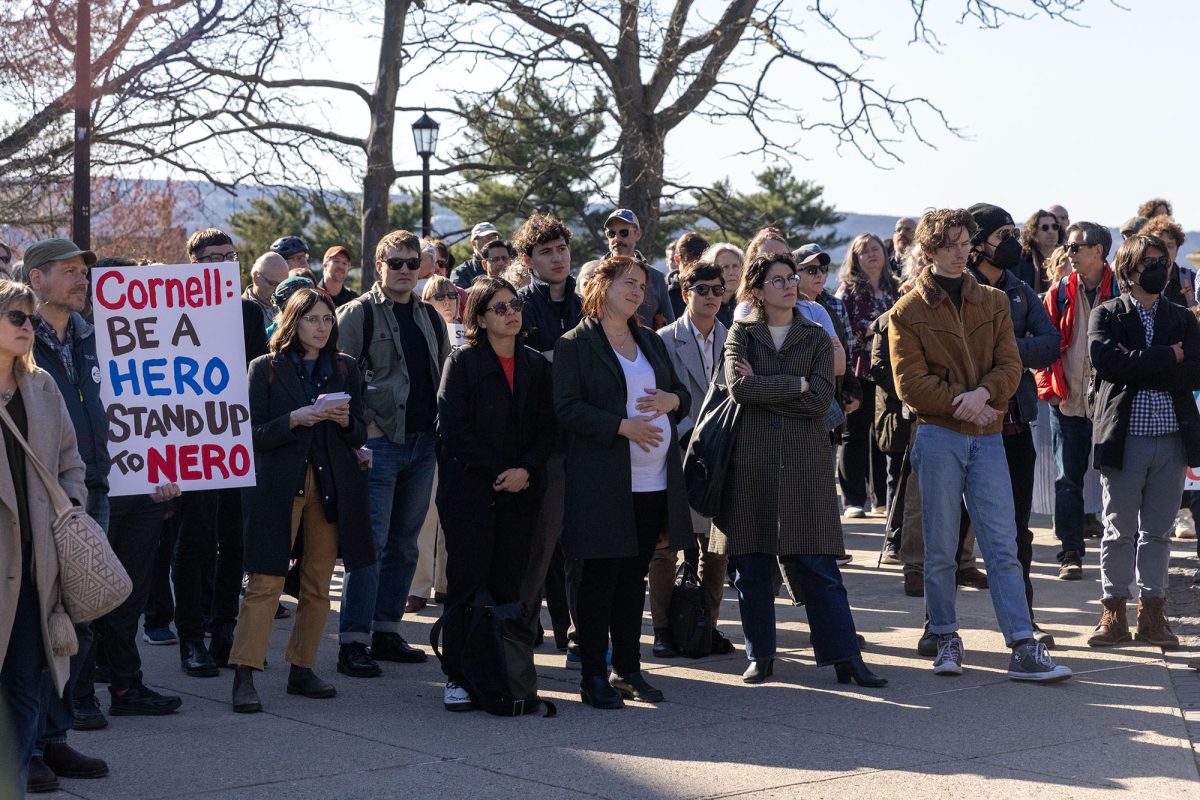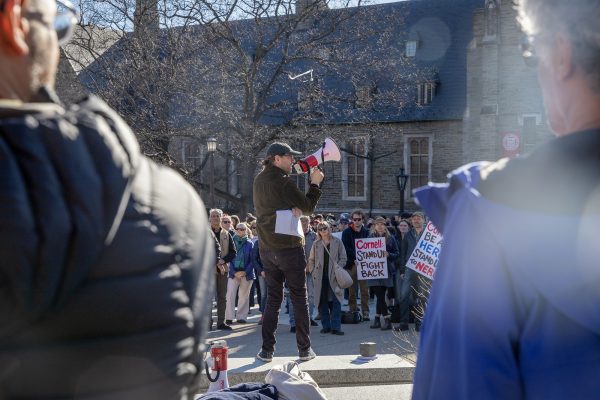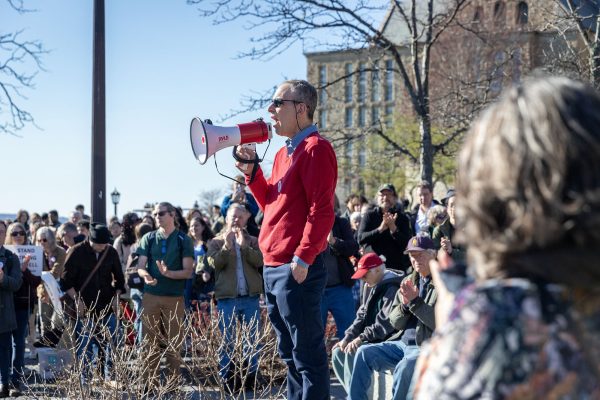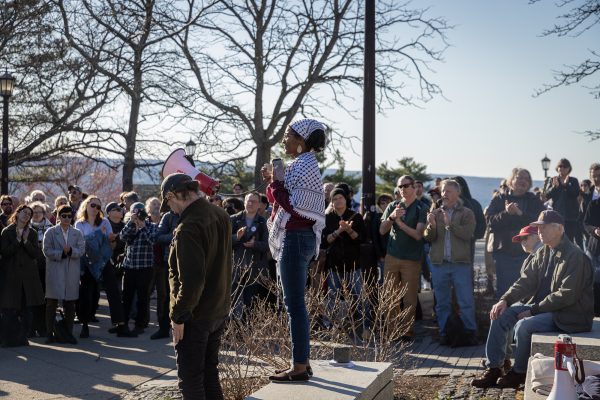
Kaeleigh Banda
The “Hands Off Higher Ed!” rally was part of the National Day of Action for Higher Education organized by the Coalition for Action in Higher Education. There were 192 events scheduled across the United States on college and university campuses to support the day of action.
On April 17, about 500 people gathered at Cornell University’s Ho Plaza for the “Hands Off Higher Ed!” rally organized by the Cornell chapter of the American Association of University Professors and Cornell University Out Loud. The rally was part of the National Day of Action for Higher Ed organized by the Coalition for Action in Higher Education. There were over 190 events scheduled across the United States on college and university campuses to support the day of action.
The rally held at Cornell focused on the $1 billion of Cornell’s federal funding that was frozen April 8 because of investigations into alleged civil rights violations. On April 14, Cornell joined the litigation against the United States Department of Energy and Chris Wright, secretary of the Department of Energy, for alleged unlawful cuts to federal research grants. Other higher education institutions, including Brown University, the University of Rochester and the Massachusetts Institute of Technology are also part of the litigation.

David Bateman — associate professor of government at Cornell and vice president of the Cornell chapter of the American Association of University Professors — began the rally by encouraging the crowd to chant, “Hold the line,” in response to the speakers. Bateman said no person at Cornell is disposable, so it is important to join together and defend the higher education community.
“You are not really free to study at all if you are not free to study all,” Bateman said.

Bateman then handed the megaphone to Michael Dorf, professor of law at Cornell. Dorf said the media is making people question the legality of the federal administration’s actions under President Donald Trump.
“What the Trump administration is demanding of universities is simply unlawful,” Dorf said. “An amazing thing about being a constitutional scholar over the last few months is that the bizarre examples don’t pose interesting questions; all they are is blatantly unlawful.”
Alyssa Apsel, director of electrical and computer engineering at Cornell, said she and her colleagues received stop-work orders that totaled millions of dollars. She said this impacts research on efficient photovoltaic energy and materials for cancer diagnosis — work that shapes future generations’ scientific discoveries.
“Why would this administration try to destroy scientific technology in the United States?” Apsel said. “Because science and technology represent truth and the truth is very dangerous to this administration. … We are very dangerous to them and they fear us. So, we can’t be scared.”
The concern for future generations of scientists was emphasized by Lara Estroff, chair of the Department of Materials Science and Engineering at Cornell. Estroff said she and her colleagues — Republicans and Democrats alike — are ready to stand up to the Trump administration to protect the future of science research.
Bruce Monger, senior lecturer in Earth and atmospheric sciences, said students are part of a generation that can decarbonize the global energy system and have the power to save humanity.
“Now it seems that before we can save all of humanity, we need to turn our attention and save our own democracy,” Monger said. “I encourage you to write letters or call government leaders … but even more I encourage you to write letters to the Cornell president and the Cornell trustees and tell them what it would mean to you for them to fight back as strong as possible.”

In addition to concerns about the loss of federal funding, Jawuanna McAllister — a biochemistry, molecular and cell biology graduate student at Cornell — said that at least six students have had their visas rescinded and more have had their Student and Exchange Visitor Information System records terminated. McAllister encouraged universities to stand up to the federal government’s demands.
“We urge [Cornell’s administrators] to join a mutual academic defense compact which would obligate universities to provide one another with legal and financial support in the event that any university is targeted by the federal administration,” McAllister said. “Harvard has already demonstrated that it will stand up in the face of these attacks … and I am pleased to see that Cornell is already taking steps to this end, and I hope that they will continue to do so to protect their workers.”
This is amid a larger pattern: So far in 2025, over 1,000 international students and graduates across over 130 schools in the U.S. had their visas or statuses revoked.
As the chimes of the Cornell clock tower echoed through the plaza, Sandra Babcock, clinical professor of law at Cornell, said student protesters defend human rights and therefore deserve support under international human rights law.
“Our 26,000 students are incredibly diverse,” Babcock said. “They don’t come to [higher education institutions] as empty vessels waiting for us to pour our ideological perspectives into their waiting brains. They are smart and they know how to think for themselves. … And whatever their backgrounds, the vast majority are thoughtful and eager to learn.”
Bateman invited the crowd to look at their neighbors and see how many perspectives within the Cornell community rallied in support of higher education.
“No program at this university is expendable and no person at this university is disposable,” Bateman said. “We are in for a long, hard fight. But we will win.”